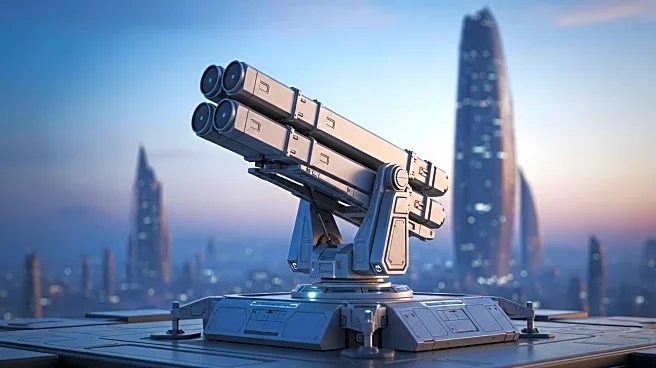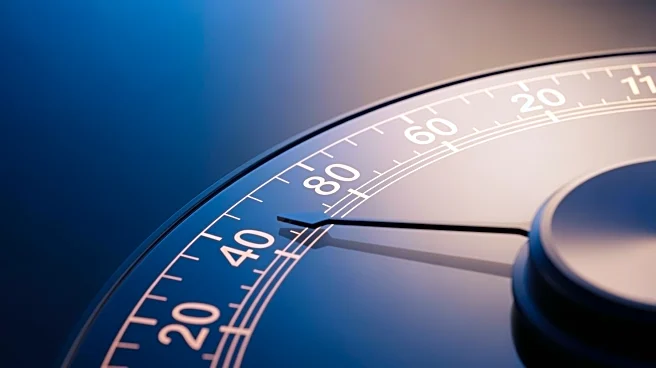What is the story about?
What's Happening?
Japan is advancing its military capabilities in response to perceived threats from China, particularly concerning a potential invasion of Taiwan. The Japanese government has initiated mass production of long-range missiles that can be launched from submarines and warships. This move is part of Japan's strategy to bolster its counterstrike and standoff defense capabilities, allowing it to strike enemy territories from a distance. The Defense Ministry has awarded contracts to Mitsubishi Heavy Industries for the production of two types of standoff missiles: the upgraded Type 12 missile and another missile designed for submarine launch. The Type 12 missile, originally with a range of 124 miles, has been upgraded to reach at least 559 miles, with future capabilities expected to extend to 745 miles. Japan has also acquired Tomahawk cruise missiles from the U.S., which can be launched from both ships and submarines.
Why It's Important?
Japan's military enhancements are significant in the context of regional security dynamics, particularly as China continues to expand its military presence in the East China Sea and the Pacific. The development of long-range missile capabilities by Japan is a strategic move to deter aggression and defend against potential threats from China. This action underscores the shifting security environment in the Western Pacific, where Japan, as part of an island chain strategy, plays a crucial role in projecting military power alongside the United States. The acquisition and development of advanced missile systems are critical for Japan to maintain its defense posture and ensure regional stability. However, these developments may also heighten tensions with China, which has expressed concerns over Japan's military activities.
What's Next?
Japan's future actions may include further development of long-range missile systems and potential acquisition of additional weapons from the U.S. as China's military capabilities continue to grow. The Japanese Defense Ministry has indicated its commitment to enhancing standoff defense capabilities in line with its National Defense Program. The evolving security landscape may prompt Japan to seek deeper military cooperation with allies, particularly the United States, to counterbalance China's influence in the region. Observers will be watching closely to see how these developments affect diplomatic relations and regional peace.
Beyond the Headlines
Japan's military advancements raise broader questions about the balance of power in the Asia-Pacific region. The historical context of Japan's militarist past continues to influence perceptions and reactions from neighboring countries, particularly China. Japan's actions may be seen as a necessary response to China's military expansion, but they also risk exacerbating regional tensions. The ethical and cultural dimensions of Japan's military buildup, given its post-war pacifist constitution, are likely to be subjects of debate both domestically and internationally.















